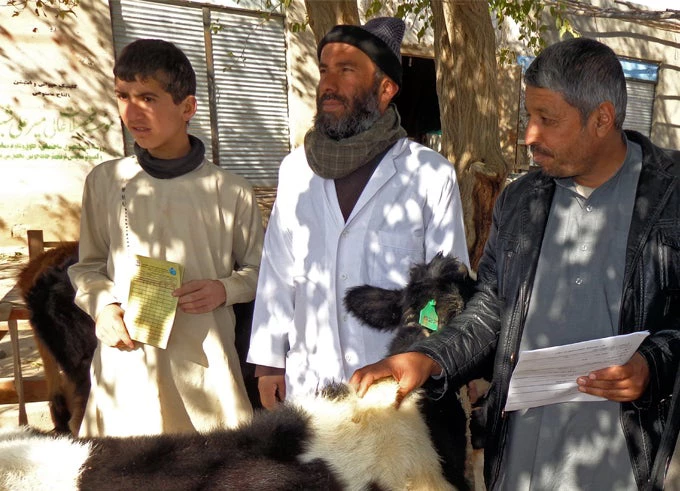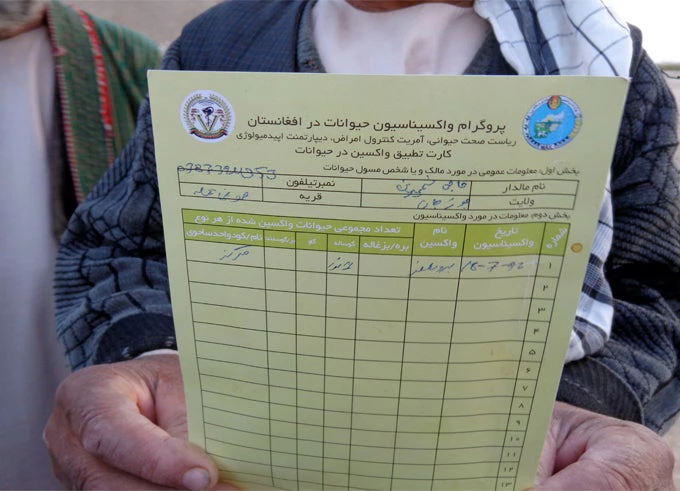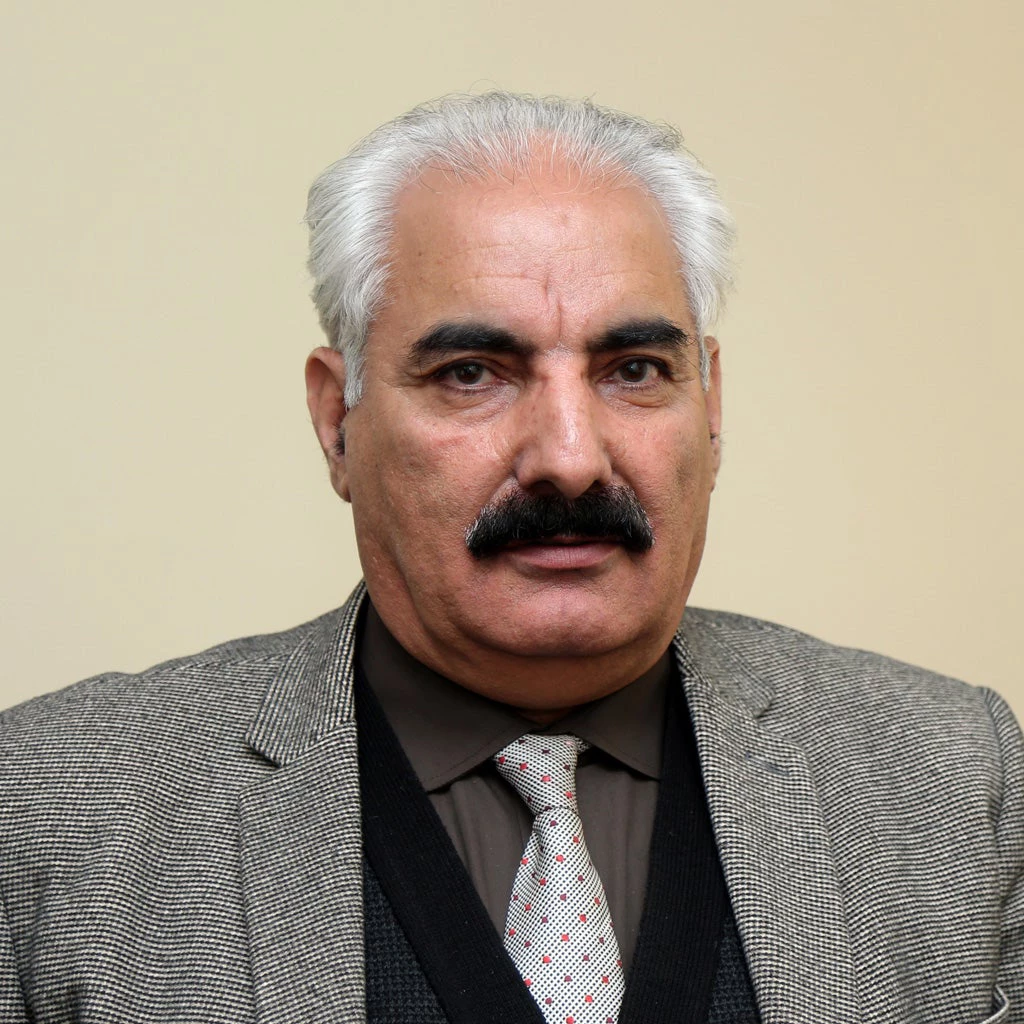One of the farmers told me, “In the past we used not to care about the animals because we thought it did not matter. If an animal fell sick, we would slaughter it and buy a new one. But now we understand the value of animal health and vaccinations. We vaccinate our animals and by taking care of them, we ensure our good health too.”
Afghanistan’s economy is highly dependent on animal husbandry and this makes the population susceptible to a host of animal-borne infections. Additionally, the country is a large importer for livestock products, and it is significantly important to improve the Afghan livestock sector through better animal health to gradually substitute imports. One such infection is brucellosis, which is highly contagious and spreads to humans from infected domesticated animals, such as goats, cattle, sheep, or dogs. It is caused by consumption of contaminated food, especially raw meat and unpasteurized milk. The bacteria can also spread through air or on contact with an open wound and even on contact with skin.

Brucellosis was identified as the flagship disease to be controlled under the National Disease Control Program (NDCP), a nationwide government program envisaged as a wide-ranging healthcare initiative under the Ministry of Agriculture, Irrigation and Livestock. A vaccination campaign against brucellosis was launched in 2013 and is continuing till the disease is mitigated and controlled.
Since there were no vaccination campaigns in the past, farmers had to put sick animals down and this had a strong negative impact on their income. Now we have active veterinary doctors in districts and villages and with animal health becoming a policy priority, farm animals are assured access to timely vaccinations. When I hear farmers tell me that the vaccinations have helped save the animals, I feel inspired that I am part of this campaign.
Through NDCP, we also train farmers on general animal health practices and give them information on disease management as well as prevention. We conduct these trainings in public places like mosques and promote them via mass media to ensure maximum participation. As we move ahead with implementing the vaccination campaign, we often face challenges like security, geographic difficulties like mountainous places, villages that do not have proper roads, and poor knowledge of the community. Despite these problems, we have implemented the project successfully in all the provinces with good results in hand.

Between 2014 and 2015, the number of incidents dropped by over 50 percent. In 2015 and 2016, about six million vaccines were administered to goats, sheep, and cattle all over the country. For us, as the project team, it was particularly heart-warming and assuring when farmers reported a significant decrease in brucellosis incidents, especially in humans. According to a survey conducted by the Ministry of Public Health in 2015, this drop was only because of the vaccination campaign by NHLP. Clearly, public health has improved as have productivity and production of livestock. A strong agrarian base will go a long way in stabilizing the country’s economy and this aspect of my work motivates me as a daily reminder of the impact of my work.
The National Horticulture and Livestock Project (NHLP), with support from the Afghanistan Reconstruction Trust Fund (ARTF), provided funds for NDCP’s implementation and facilitation, including technical assistance, such as capacity building of staff through training and sharing of experiences.


Join the Conversation